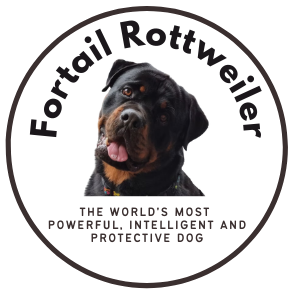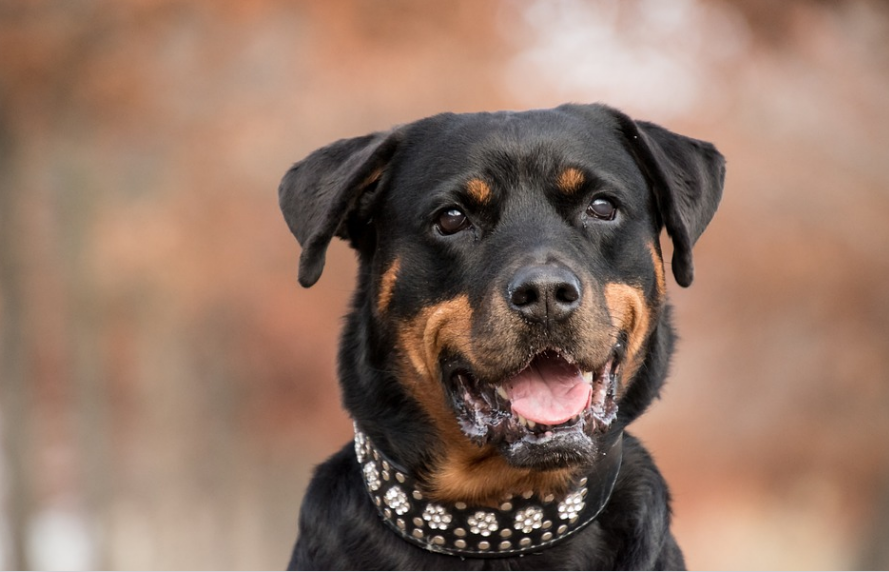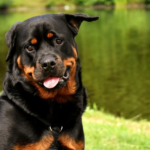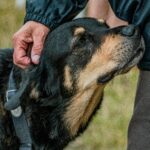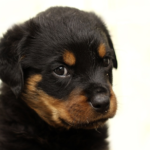Understanding and managing the behavior of a 3 month old Rottweiler requires patience, consistency, and a positive attitude. By addressing key behaviors such as potty training, chewing and biting, socialization, training, and exercise, you can create a happy and healthy relationship with your new furry friend. With the right approach, your Rottweiler will grow into a well-behaved, loving companion.
Related topics:
- Managing Your 2-Year-Old Rottweiler’s Behavior
- 9 Month Old Rottweiler Behavior: Tips and Training
- Understanding 8 Month Old Rottweiler Behavior: A Guide for Owners
How to know if Rottweiler is happy?
Understanding the emotional state of your Rottweiler is important for ensuring their overall well-being and happiness. Here are a few signs that can indicate your Rottweiler is happy:
Tail Wagging:
A wagging tail is often a sign of a happy and excited dog. If your Rottweiler’s tail is wagging energetically, it’s a good indication that they are feeling happy and content.
Relaxed Body Language:
A relaxed and loose body posture is another sign of a happy Rottweiler. If they are lying down with their limbs stretched out, or sitting with their ears perked up, it’s likely they are feeling comfortable and content.
Playful Behavior:
Rottweilers are known for being playful and energetic. If your Rottweiler is initiating play, bringing you toys, or engaging in other playful behaviors, it’s likely they are feeling happy and content.
Active Appetite:
A healthy appetite is usually an indication that your Rottweiler is happy and content. If they are eating well and showing interest in food, it’s likely they are feeling good emotionally.
Affectionate:
Rottweilers are known for being affectionate with their owners. If your Rottweiler is seeking attention, cuddling, or displaying other affectionate behaviors, it’s a good indication that they are feeling happy and content.
3 month old rottweiler feeding
Feeding a 3 month old Rottweiler can be a challenging task, but it is important to ensure that they are getting the proper nutrition for their growth and development. Here are a few things to keep in mind when feeding your 3 month old Rottweiler:
Feeding Schedule:
Establishing a consistent feeding schedule is important for a 3 month old Rottweiler. This can include two or three small meals a day, spaced out evenly throughout the day. Puppies have small stomachs and can’t eat as much as adult dogs.
Quality of Food:
Feeding your Rottweiler a high-quality puppy food is essential. Look for a food that is specifically formulated for large breeds like Rottweilers and has the proper balance of protein, fat, and carbohydrates to support growth and development. Avoid foods that are high in fillers or by-products.
Portion Control:
It is important to monitor the portion size of your Rottweiler’s meals. Overfeeding can lead to weight gain and other health issues. Follow the feeding guidelines on the food package, or consult with your veterinarian for guidance on the appropriate portion size for your puppy.
Transitioning to Adult Food:
Around 6 months of age, your Rottweiler will be ready to transition to an adult diet. Gradual transition is recommended, by mixing the puppy food with adult food.
Fresh Water:
It’s important to always have fresh water available for your Rottweiler. You may need to refill the water bowl multiple times a day to ensure that your puppy is getting enough to drink.
3 month old rottweiler weight
The weight of a 3 month old Rottweiler can vary depending on factors such as breed, size, and activity level. However, in general, a healthy 3 month old Rottweiler should weigh between 15-20 pounds.
It’s important to monitor your Rottweiler’s weight to ensure they are growing at a healthy rate. Overweight or underweight puppies can be at risk for health issues and developmental problems.
It is important to consult with your veterinarian to determine if your Rottweiler is at an appropriate weight for their age and size. Your veterinarian can also provide guidance on how to adjust your Rottweiler’s diet and exercise routine as needed to maintain a healthy weight.
It’s also important to keep in mind that weight is not the only indicator of health and well-being, and you should also pay attention to your Rottweiler’s overall body condition, energy levels, and behavior.
Conclusion
In conclusion, it’s important to note that every Rottweiler is unique and may express their emotions differently. It’s essential to observe your Rottweiler’s behavior and body language over time to get a better understanding of their emotional state. Additionally, if you notice any sudden changes in behavior or if your Rottweiler seems to be in distress, it’s best to consult with a veterinarian or professional dog trainer to determine the cause and address it. monitoring the weight of a 3 month old Rottweiler is important for ensuring their overall health and well-being. A healthy 3 month old Rottweiler should weigh between 15-20 pounds, but this can vary depending on factors such as breed, size, and activity level.
